According to the O*NET database, General and Operations Managers Plan, direct, or coordinate the operations of public or private sector organizations. Duties and responsibilities include formulating policies, managing daily operations, and planning the use of materials and human resources. This includes: Business Manager, Facilities Manager, Facility Manager, General Manager (GM), Operations Director, Operations Manager, Plant Manager, Plant Superintendent, and Production Manager.
To date, we’ve assessed 7 leaders in this role, in the Machinery and Heavy Equipment industry, including a unique 360° feedback platform that collected comments from managers, peers, direct reports, and others. Participants received comments from 108 raters. Although this small sample size means that we can’t separate out the top 85% of participants in a meaningful way or confidently say that these qualities apply to other organizations, we will highlight consistent strengths and talents for the current group; and look forward to updating these results in future.





